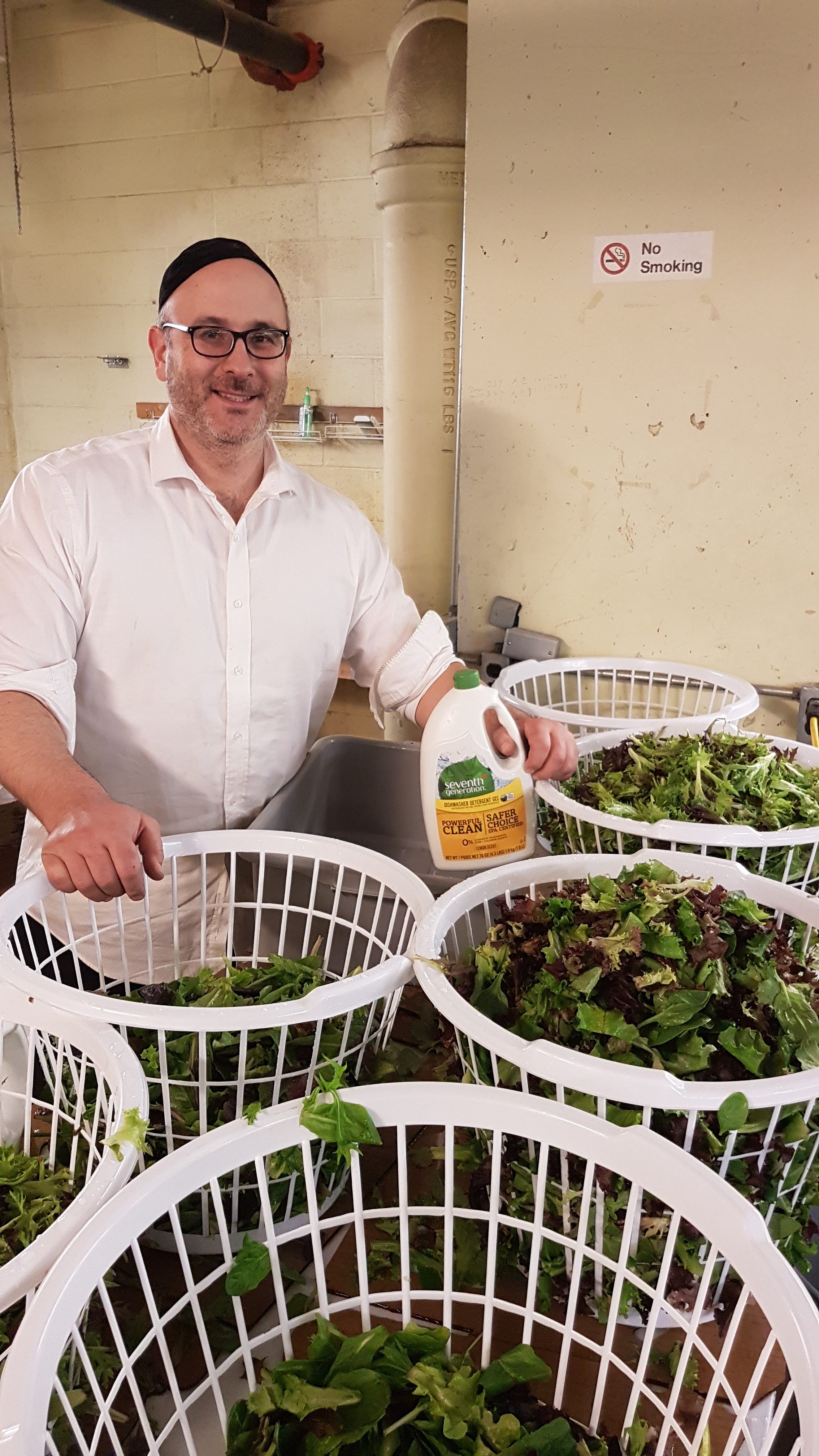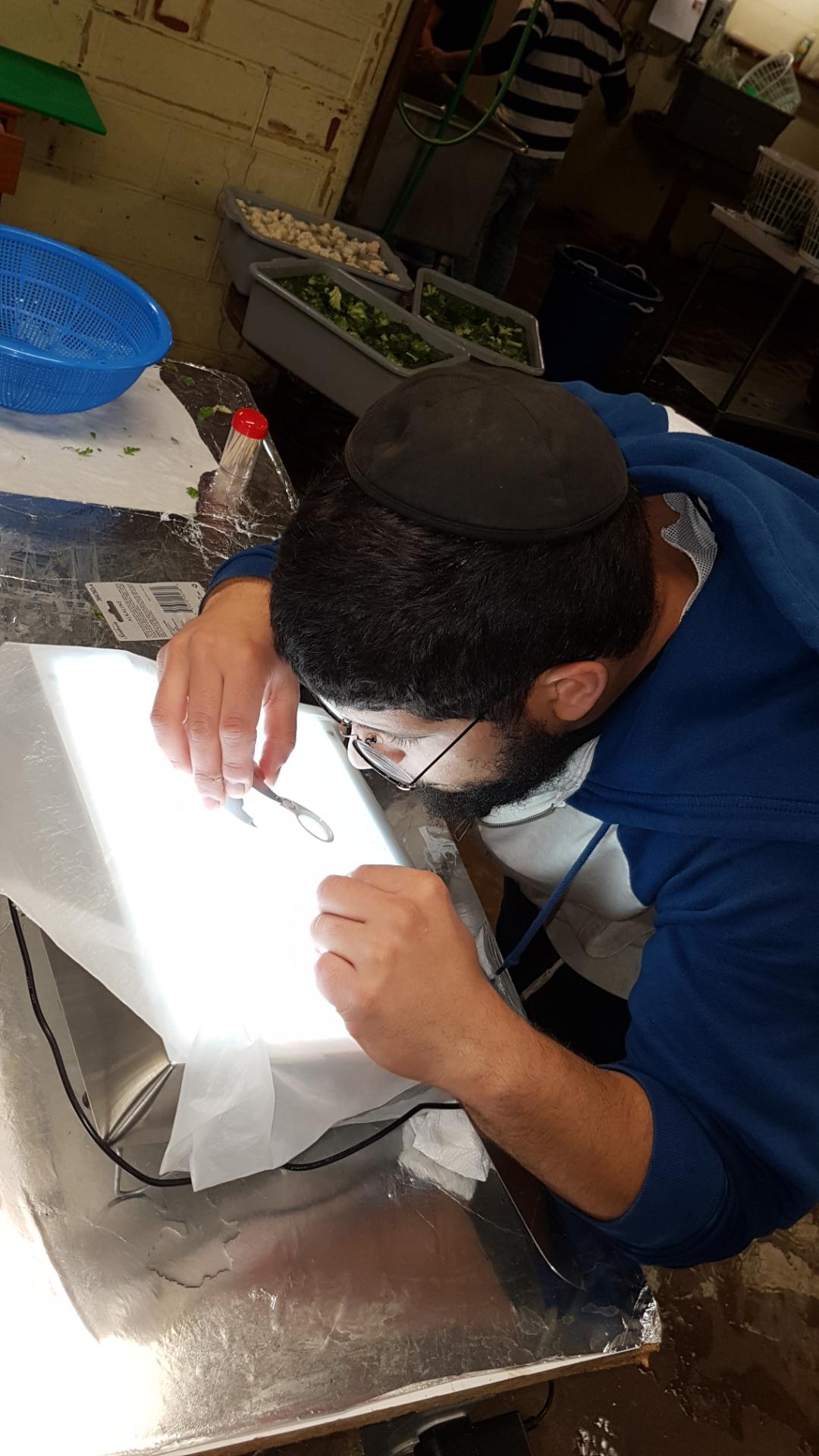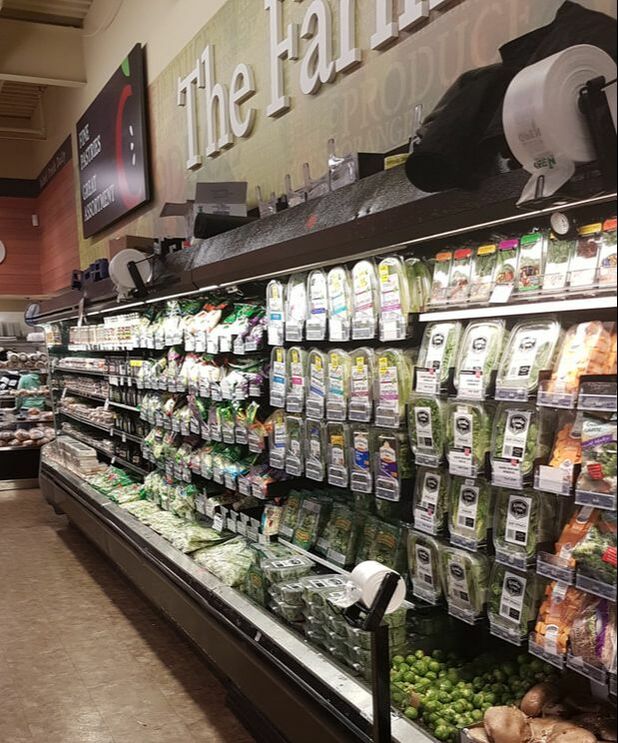
Kosher Crops (sans bugs) aims to create the ‘cleanest, freshest’ salad greens yet
While an array of triple-washed or greenhouse-grown salads has become available in kosher stores locally over the past several years, they have generally been limited to very basic lettuce blends and have varied in quality.
(February 6, 2019 / JNS) While leafy greens contain essential vitamins, minerals and dietary fiber, they are particularly susceptible to infestation. Unwashed greens commonly house tiny insects such as aphids, thrips, leafminers and cabbage worms. Checking salad greens for these charming creepy crawlies takes a lot of time for many kosher-keepers, and still others might decide to skip the salad altogether, deciding that intensive washing and checking simply isn’t worth the effort.
While an array of triple-washed or greenhouse-grown salads has become available in kosher stores locally over the past several years, they have generally been limited to very basic lettuce blends, and have varied in quality and freshness.

“This is a great new line of high-quality, pre-checked lettuce,” said Dani Secemski, owner and manager of Glatt Express in Teaneck, N.J. “It’s been selling great so far, and our customers love it.”
A manager at another local Teaneck store, Cedar Market, Oscar Cuevas also noted that the freshness is what sets apart this new product. “It comes into the store the day after it’s been washed, so it’s a very fresh product compared to other brands. We hope our customers will try it and see the difference,” he said, noting that Cedar Market is selling the entire Kosher Crops line except for kale, which they will offer if customers request it.
Ellen, a businessman and Montreal native now based in Pennsylvania, started out just wanting a nice salad. “We didn’t have any kosher salad available to us: no Bodek, no Positiv, no Kosher Gardens, we didn’t even have Fresh Express,” he said. “So I got a Keystone-K [Community Kashrus of Greater Philadelphia] hechsher and pitched the product to a local Acme store. Once they approved the product, I hired a mashgiach[‘kosher supervisor’] and a packer, and we started selling 80 boxes of lettuce a week. Shortly after that, we got listed in ShopRite and then House of Kosher.”
Under the Keystone K in Philly, he is providing bok choy, broccoli, cauliflower and other greens like watercress, baby arugula, baby spinach and kale, in addition to romaine stalks and mixed salad greens. “But to sell nationally, you need a Star-K, which is the most thorough and machmir [‘strict’] hechsher for bug-checking by far. So I applied for the hechsher. The process was arduous, but Rabbi Sholom Tendler and Rabbi Dovid Stern both helped us improve our techniques and taught us how to streamline the process.”

“Star-K requires all produce to be thoroughly washed and checked to make sure not even one insect is found. The method we use is known as the ‘thrip cloth’ method, which is widely considered the most effective way to check produce,” Rabbi Stern told JNS.
“We source the produce from a variety of farms: some greenhouse, some hydroponic and some organic. It really depends on quality. Interestingly, at different times of the year, different farms produce better crops,” explained Ellen. “Because we wash and we don’t grow, we’re able to source the absolute best produce available.”
Kosher Crops uses sophisticated drying techniques and tamper-evident packaging to ensure crispness and extend shelf life, promising that salads remain fresh for seven days past the date printed on the package. While some Kosher Crops products are not yet available under the Star-K, Ellen is working to provide as much variety as is allowable under each hechsher.
Future plans for Kosher Crops include hechshered super-green blends with spinach, arugula or spring mix to serve as bases for high protein, non-animal based prepared salads.
“We’d like to be able to offer healthy grab-and-go meals that are fresh, filling and good for you. The days of having to buy ‘salad’ that is basically iceberg [lettuce] in a vacuum-sealed bag are finally over,” said Ellen.
He is also looking into producing a line of fresh vegetable juices, and is hoping to expand into Florida, Illinois (Chicago) and California with its current product line by Passover time.
After securing the Star-K, Ellen headed to Teaneck and Passaic, N.J., to pitch his products. Kosher Crops products are now available in every kosher grocery store, including Seasons, Glatt Express and Cedar Market. “We’re now selling just under 1,000 boxes a week. Each five- to seven-ounce box of produce costs $5.99 to $6.99, and has a shelf life of seven days. “We hope to launch in stores in Baltimore and service more ShopRite stores in New Jersey. We’re also in talks to get other hechsherimso we can sell in New York City; Monsey, N.Y.; and the Williamsburg” neighborhood of Brooklyn, N.Y.
An employment source for the community
Ellen’s background in business has made him confident that he can make his new salad endeavor a success. He owned a company in Montreal called Achoo Tissue, which did private labeling of hygienic products mostly for pharmaceutical companies in Canada and the United States. “When I sold that business in 2007, we were one of the largest private label hygienic companies in Canada. After that, my wife and I moved to Israel. We were fortunate to be able to live there and learn full-time for 10 years before moving to Philadelphia so we could be close to her family,” he explained.

Launching Kosher Crops for the Philadelphia metropolitan area was a chesed project for Ellen, as his primary work is now in real estate. But as the salad business is growing outside the region, it’s starting to take more of his time.
“I also wanted to create opportunities for Jewish community members who need jobs,” he added. “This week we washed just under 300 pounds of produce. At our current rate of growth, we hope to be at 600 pounds per week by mid-March, and then we’ll be focused on Pesach. There’s a lot of competition at that time, including imports and pop-up washing businesses, for romaine. Our goal isn’t to be the biggest; our goal is to provide the freshest and cleanest produce.”
Adina Shmidman of Bala Cynwyd, Pa., the Orthodox Union’s director of women’s initiatives, is pleased with the produce and happy that Ellen has entered the kosher marketplace. “Supporting a local Jewish startup, no bug-related worries and ease of function, it’s a win all-around,” she told JNS. “As a kosher consumer, I’m exceptionally grateful.”